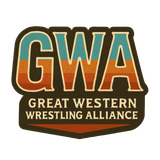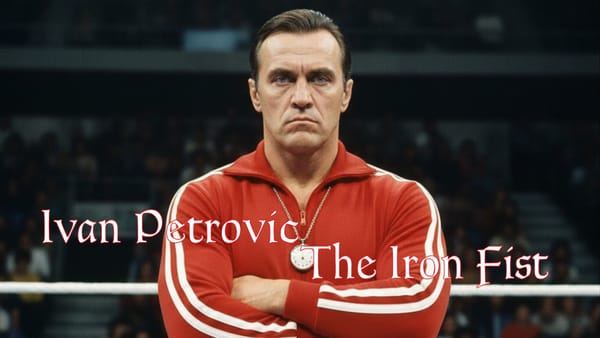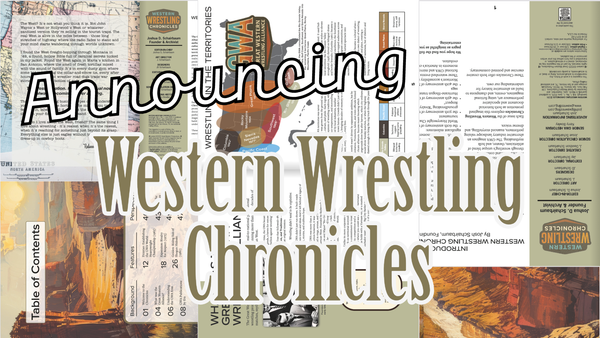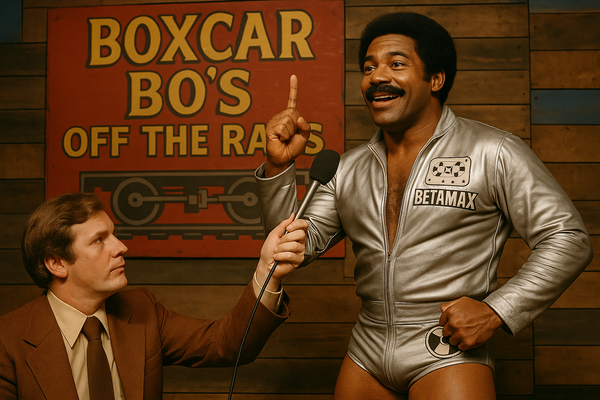Dusty McGraw
Before modern wrestling found its polish, Dusty McGraw's voice echoed through frontier arenas, turning smoky fairground battles into epic sagas. His worn leather notebook held more than match notes—it chronicled the soul of territorial wrestling, one honest call at a time.
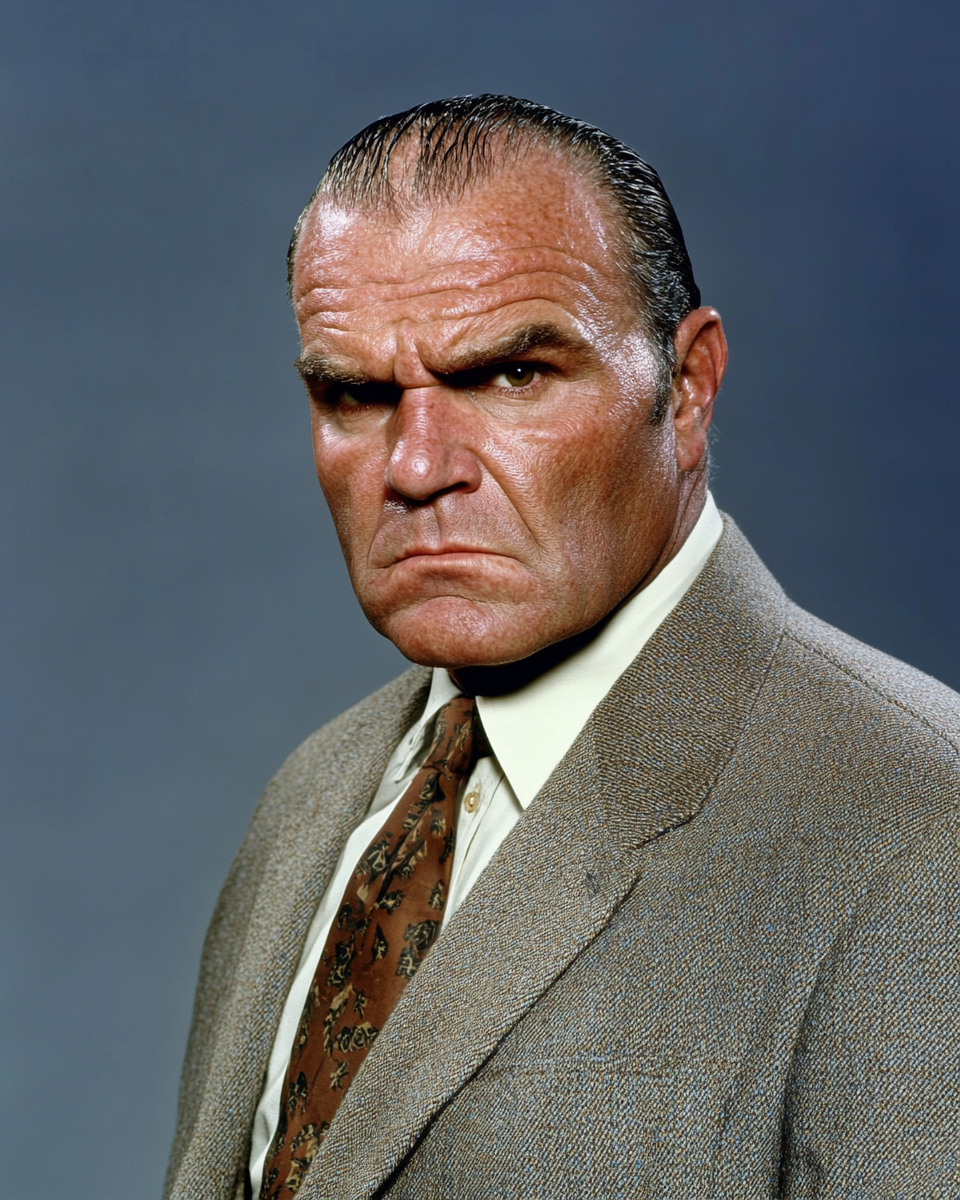
Basic Information
- Name: Robert "Dusty" McGraw
- Nickname/Title: "The Voice of the Frontier"
- Origin: Thermopolis, Wyoming
- Years Active: 1967-1988
- Primary Role: Play-by-Play Announcer
- Shows:
- Western Wrestling Hour (1967-1988)
Broadcasting Style
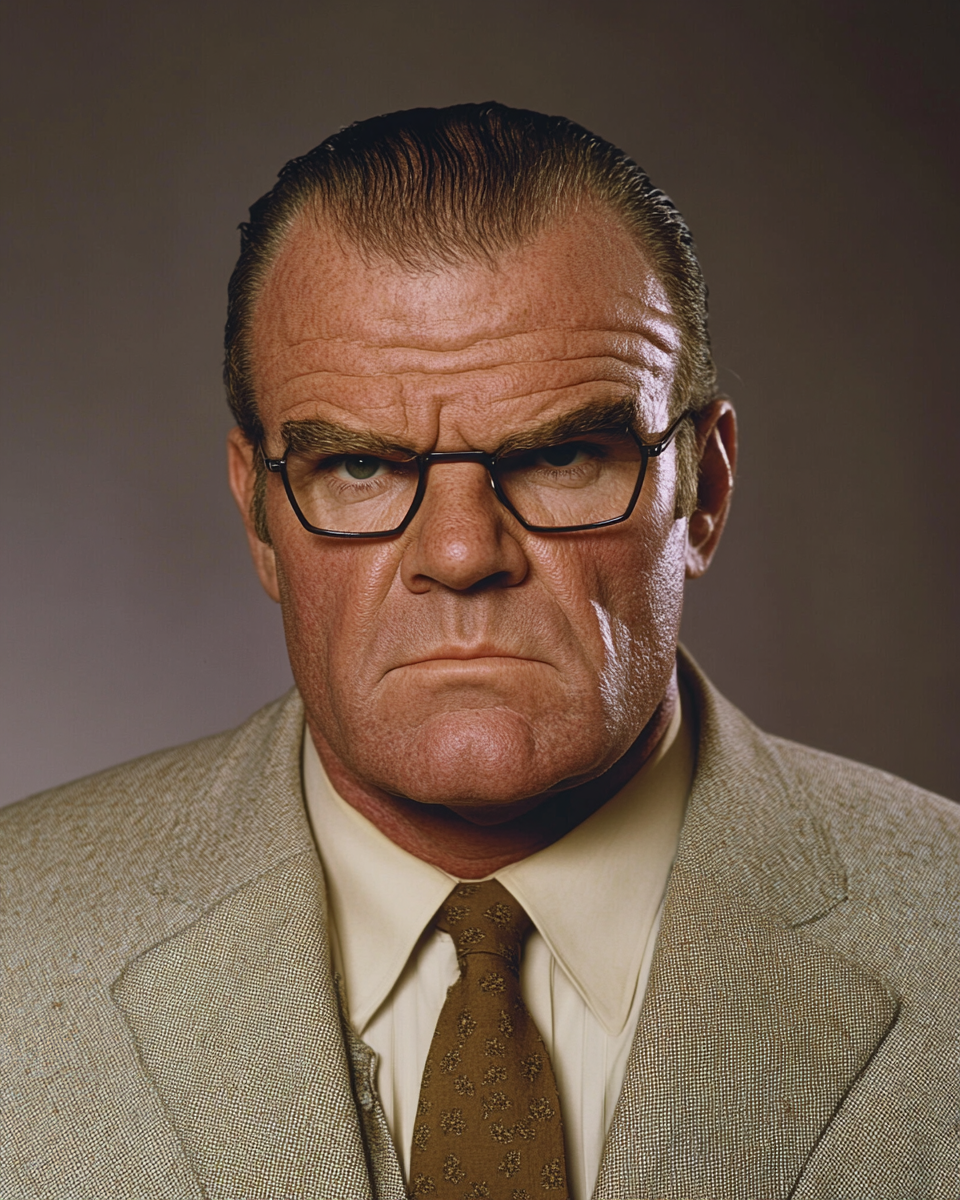
- Commentary Style: Folksy storyteller who blended ranch-hand wisdom with technical wrestling knowledge. Known for making small-town matches feel like major events through his earnest, detail-oriented calling style. Emphasized the sport's competitive aspects while weaving in territorial history and championship lineage.
- Signature Phrases:
- "Folks, this is the kind of wrestling that built this territory..."
- "That's ranch-hand strong right there!"
- "This ain't no pearl-handled wrestling, folks. This is brass knuckles and barbed wire!"
- Notable Partnerships:
- Count Kingsley (1967-1988) - Their contrasting styles (folksy vs aristocratic) created memorable commentary
- Franklin J. Lewis (1973-1985) - Technical expertise complemented McGraw's storytelling
- Sam Grady (1983-1988) - Mentored Grady in his early broadcasting career
Background
- Career History: Korean War veteran (radio operator, 1952-1954). Worked as a local radio DJ covering high school sports and rodeos before joining GWA in late 1966.
- Character Dynamic: Respected figure who maintained kayfabe while adding legitimate sporting credibility. Known for giving young talent their first serious interviews and treating preliminary matches with main event gravity. Kept detailed records of matches and territory history.
- Legacy: McGraw's 21-year run helped establish Western Wrestling Hour as the soul of frontier wrestling. His authentic approach and deep respect for wrestling tradition influenced a generation of broadcasters. His ability to elevate local matches through compelling storytelling made him an essential voice in preserving territorial wrestling's rich history.

